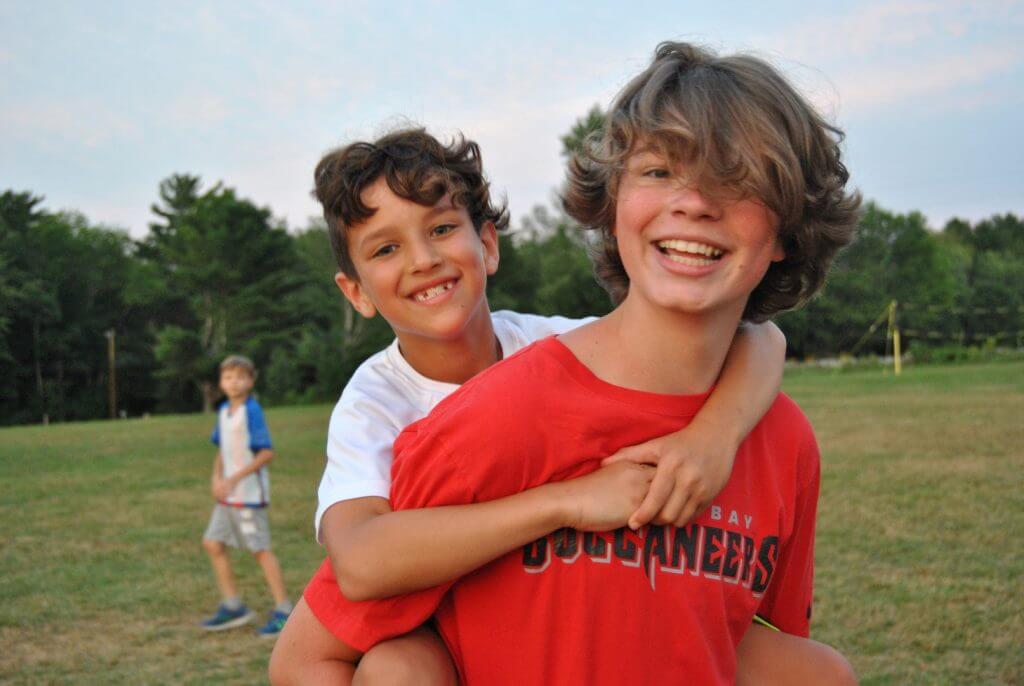The Psychological Benefits of Sleepaway Camps for Children
Posted by: Birch Rock Camp

The Psychological Benefits of Sleepaway Camps for Children
Mental health awareness is on the rise and with it the discussion of how we can help future generations maintain a balanced and healthy mental state. According to the Center for Disease Control and Prevention, 1 in 5 American children ages 3-17 (about 15 million) have a diagnosable mental, emotional, or behavioral disorder. It seems now more than ever children are in need of a change of pace, an environment that will support, encourage, and empower them during their early years. Sleepaway camps offer children unique psychological benefits that school and their day-to-day environments cannot provide.
Social Skills
Camps teach children how to share and cooperate with one another. They also provide the environment for children to interact with others their age, helping to teach problem-solving skills while also expanding their imagination and creating bonds with new friends. During the school year, teachers have an obligation to meet curriculum standards and boost academic achievement, making it difficult to set time aside for there to be a focus on social-emotional development. Camps provide a focus on teaching community building and encouraging inclusion in each group.
Interacting and participating together in activities helps children develop a greater understanding and awareness of their peers’ feelings and different lifestyles. This helps children become more open-minded and compassionate to others around them. Problem-solving and succeeding in activities together form strong bonds between children and create friendships that last a lifetime.
Self-confidence and Independence
“The biggest plus of camp is that camps help young people discover and explore their talents, interests, and values. Most schools don’t satisfy these needs. Kids who have these kinds of (camp) experiences end up being healthier and have less problems which concern us all”
-Peter Scales, Ph.D., noted author/educator, and Senior Fellow, The Search Institute
Sleepaway camps are all about trying new things! Children are encouraged to step out of their comfort zones and venture down avenues they may not usually have the resources to explore. Although the prospects of trying something new may seem scary for children at first, camp counselors are trained to create an environment that helps children develop new skills while supporting and encouraging them when overcoming new challenges these skills may present. Counselors are also trained to empower children by encouraging each child to contribute to the group, helping them feel valued and making it easier to find friends, thus improving self-confidence. Camps also teach children that it’s okay to be uncomfortable when learning new things. Being familiar with and embracing this discomfort instills the “I can!” attitude, which helps children further develop their self-confidence and independence.
Encourages the Importance of “Unplugging”
In this day and age the psychological importance behind face-to-face communication has become more important than ever. In a survey conducted by the Pew Research Center in 2018, 45% of teens say they are online on a near-constant basis. Sleepaway camps are a place where children are encouraged to unplug and communicate face-to-face, helping them develop an understanding of non-verbal cues like body language and facial expressions. This can help build stronger connections and trust as well as inspire and foster engagement between children.
Overnight camp experiences hold endless opportunities for children to develop skills that they will carry with them well into their adult lives. A child’s early years are where memories are made and their core values are shaped and molded by the world around them. Sleepaway camps cater to this impressionable time in their lives by creating an environment that’s safe, supportive, and inspiring for children, helping make great advancements in their psychological health that will benefit them now and in the years to come.










